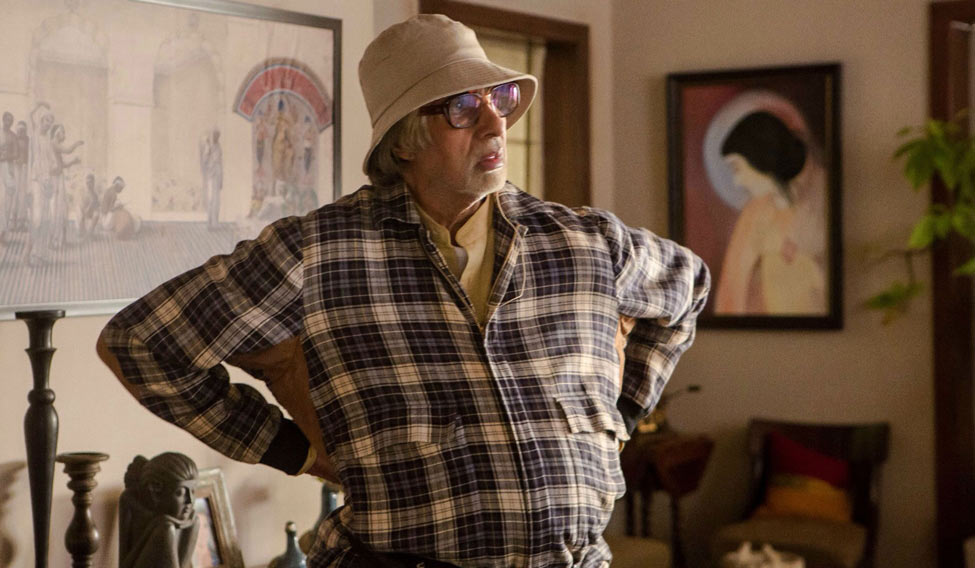Two things are sure—death and shit, says Amitabh Bachchan’s character Bhaskor Banerjee in the 2015 film Piku. He plays the cranky irritating father of Piku, played by Deepika Padukone. Banerjee is obsessed with shit, and holds long monologues about its shape and size. He’s also obsessed with death and one might argue that his fascination with constipation is, in fact, a morbid fear of death. When Irrfan Khan’s character talks of his father being put on the ventilator before his death, Banerjee is aghast. “Do you know how painful that is?” he says. “They stick needles into you. I don’t like unnatural deaths.”
In the film, Bachchan was probably suffering from death anxiety or thanatophobia. Psychology Today defines it as the self’s will to continue, to survive, to persevere, to prosper, to thrive and multiply in a world which makes this difficult and, eventually, impossible. Freud, who himself suffered from death anxiety, says that “in the unconscious, everyone is convinced of his own immortality.”
Death anxiety is only a form of anxiety that is seemingly becoming more common among the urban and educated population of India. According to a study published in The Lancet last week, anxiety disorders in India have climbed up from the 40th place in 1990 as a contributor to disability adjusted life years or DALYs (number of years lost to disability, ill-heath or early death), to the 26th place in 2016. The study listed it among the top 10 causes for morbidity in India in 2016. According to reports, Maharashtra, Delhi, Andhra Pradesh, Karnataka and Kerala are among states that have more problems due to anxiety disorders.
While her father was a neurotic basket case in Piku, Padukone herself came out as suffering from depression in the same year. “There is always a fear in my mind that I might have a relapse because it has been such a bad experience for me,” she said. Her revelation brought the problem out in the open in a big way. News channels flashed depression statistics, experts came on television to talk about the disorder and the internet was flooded discussions on depression. It is a problem that’s out in the open. Unlike anxiety which many don’t even realise they’re suffering from.
“Anxiety is a more common mental disorder than depression,” says Dr Varghese Punnoose, head of psychiatry at Government Medical College, Kottayam, Kerala. “One in five people among the general population suffers from anxiety.”
He says it could start from childhood with many children suffering from separation anxiety when they are enrolled in school too early, before they are psychologically ready. Among adolescents, unrealistic academic expectations and too much pressure to make career choices not matching biological makeup could contribute to anxiety. Among adults, the reasons could range from ambitions for material prosperity, poor quality of relationships and high level of individualism, which used to be more common in western societies.”
In an earlier era, life moved at a slower pace. There was something cool about being a loafer, cutting classes and lolling about in your college canteen in low-slung jeans, nerdy glasses and an attitude problem. Today, everyone has upped their game. It starts early when children are shuttled from piano to martial arts classes to give them an edge over others and later, enrolled in coaching institutions while still in school to improve their chances of getting into prestigious colleges. “Remember those days when we used to play musical chairs at birthday parties and children would be weeded out when the music stopped until the last child standing won the game?” Someone I know asked me. “Today, no child gets out without being presented with a return gift so that they don’t feel like they’re inferior to the other children.” Such molly-coddling ensures these kids grow up into adults who don’t know how to deal with failure. When they encounter a difficult situation, they break down.
The New York Times says that the fidget spinner is to the current generation what the Rubik’s Cube was to an earlier one. “The Cube was fundamentally a cerebral, calm pursuit, perfect for the latchkey children of the 1980s to while away their lonely, Xbox-free hours,” it says. “The fidget spinner is nothing but nervous energy rendered in plastic and steel, a perfect metaphor for the over-scheduled, overstimulated children of today as they search for a way to unplug between jujitsu lessons, clarinet practice and Advanced Placement tutoring.”
Of course, neurosis itself is nothing new. Remember all those near-maniacal characters in the Woody Allen movies of the ‘70s and ‘80s? “I feel that life is divided into the horrible and the miserable,” Allen’s character Alvy Singer says in Annie Hall. “That's the two categories. The horrible are like, I don't know, terminal cases, you know, and blind people, crippled. I don't know how they get through life. It's amazing to me. And the miserable is everyone else. So you should be thankful that you're miserable, because that's very lucky, to be miserable.”
So, what has changed since then? “Earlier,” says Punnoose, “anxiety took a concrete shape. There were clear reasons for it—threat of life, security, mating partner availability… Today, it’s more ambiguous. You may not be able to pinpoint the exact reason why you’re suffering from anxiety. The brain has evolved over millions of years. The basic neurological system is unable to cope with the kind of rapid social change that we’re seeing now.”
Everything is interconnected. As my mother says, there is no respite from bad news. “In my day, there was no means of communication with someone once they went out of the country,” she says. “You just trusted and prayed that they would get back in one piece. There was a kind of comfort in that. Today, everyone is aware of what’s happening in others’ lives. An earthquake takes place in a distant part of the world and you’re immediately alerted. I’m always scared something’s going to go wrong. It makes me panicky.”







